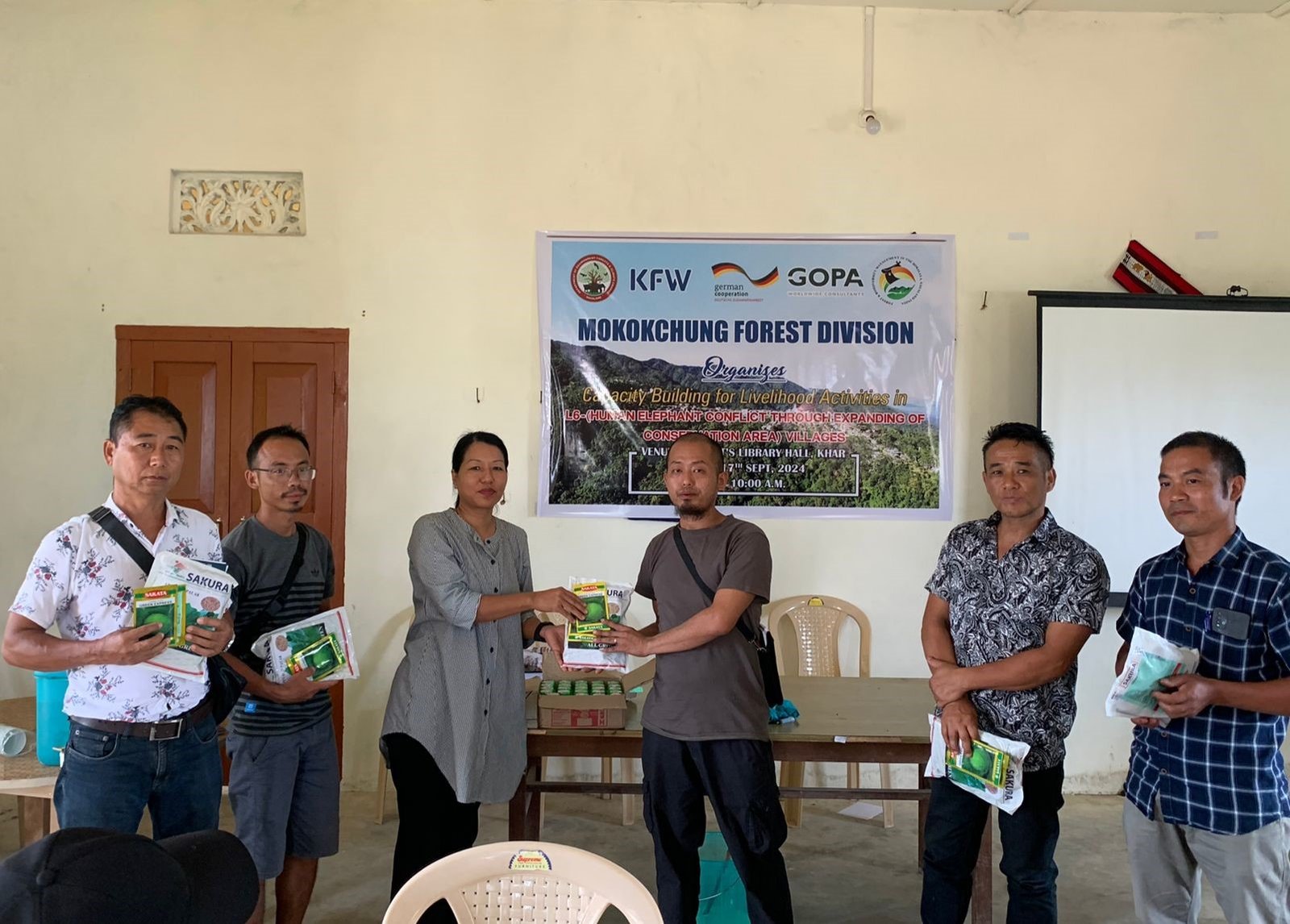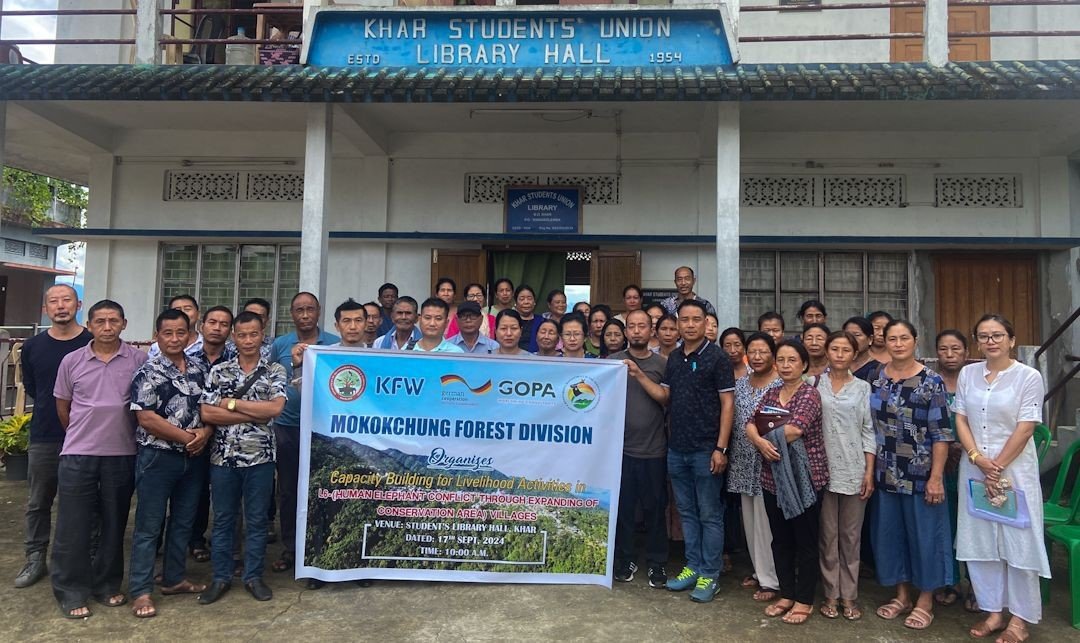A hands-on-training session on “Capacity Building for Livelihood Activities” in L6 (Reduced Human Elephant Conflict through Expanding on Conservation Area) Villages was organised by Forest and Biodiversity Management in the Himalaya, Nagaland Project (FBMP), Mokokchung Division on 17th September 2024, at the Student Library Hall, Khar Village, Mokokchung. The training involved participants from under the Batch-1 villages including Alongkima, Dibuia, Mongchen, Waromung and Khar Village.
The program was chaired by Lipokinla Pongen, FcOM and commenced with an invocation led by Pangerchila, Associate Youth Pastor, Khar. In the keynote address, Moamongba, Asst. Conservator of Forest, Tuli, extended a warm welcome to all participants and expressed his gratitude for their attendance. He highlighted the aims and objectives of the training, emphasizing its role in empowering participants with skills for livelihood enhancement. He also appealed all the stakeholders to work earnestly towards improving conservation area management alongside livelihood activities in all the Batch-1 villages.
Tongpangtemsu, Village council Khar, delivered a brief speech welcoming all the participants and encouraging the participants to work diligently in livelihood activities in their respective villages while contributing actively to the community.

This was followed by a technical session covering various topics such as mushroom farming, agricultural pest management, eri silkworm rearing and swine production and management. Dr. Martha Chakruno, ACTO (Plant Protection), KVK Mokokchung led the session, emphasizing the use of high quality straw for mushroom farming, effective packaging methods, deworming techniques, and the use of chemicals to ensure high quality mushroom production. She also introduced integrated pest management strategies through cultural, biological and chemical methods for pest control in cultivation area. KVK Mokokchung also distributed kharif seeds and feed supplements and to all the participants to support their agricultural activities.
Nokzenkerba, Extension Officer, Sericulture, Mokokchung and Alem, Sericulture Field Asst. Mokokchung presented on successful eri silkworm rearing, highlighting the types of plants essentials for feeding in order to achieve high-quality silk production.
The session on Swine production and Management was conducted by Dr. Ketinaro, Veterinary Department, Mokokchung who covered various topics ranging from breed selection, pig care and management, feeding practices, disease prevention and healthcare, housing management, care and management of gilts and sows during pregnancy and farrowing.
Additionally, vaccinations were provided for dogs and cats as part of the healthcare services offered during the program.

The event concluded with a closing remark and vote of thanks by Tali, Ao Convergence Expert, DMU, followed by a short interview with one participant from each village, sharing their experiences from the training. The program ended with a communal lunch.
The “Forest and Biodiversity Management in the Himalaya, Nagaland” Project (FBMP),, Co-financed by Federal Republic of Germany through KfW (German Development Bank) is being implemented under Mokokchung Forest Division and under the Batch-1 village which includes Alongkima, Khar, Mongchen, Dibuia and Waromung village.
The objectives of this Project include promotion of sustainable and effective management of forest and biodiversity in the state of Nagaland, to support improved connectivity and conservation of Biodiversity, to create and enhance livelihood opportunities of dependent communities, and to put in place incentive mechanisms rewarding communities for effectively protecting and maintaining their Community Conserved Areas.


